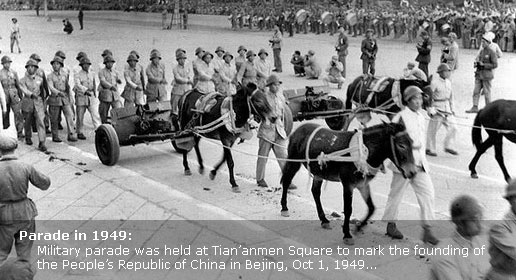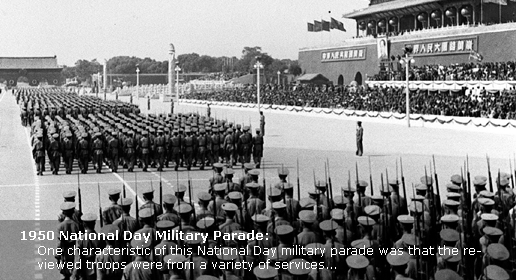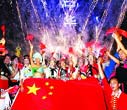News
PLA's Air Force eyes combination of offensive, defensive strategy
(Xinhua)
Updated: 2009-10-01 12:07
Fighter jets screamed, reconnaissance gunships buzzed and various surface-to-air missiles rolled down for the People's Liberation Army (PLA) Air Force to showcase the largest ever line-up on the National Day parade.
When the captured US-made WWII aircraft flew over the Tian'anmen to stage an aerial display while playing the role of air guard for the parade to mark the founding of the People's Republic of China six decades ago, the PLA's Air Force was not officially founded yet.
However, just 14 months after the fledgling Air Force became the PLA's third service, 27-year-old pilot Li Han in his MiG-15 shot down the Air Force's first enemy jet in the Korean War in the 1950s.
"Pilots of the Chinese People's Volunteers in the Korean airspace stunned many American veterans with thousands of dog-fight hours in WWII, just like a new born calf who does not fear the tiger," said Dong Wenxian, a retired analyst with the PLA Air Force's headquarters.
"Despite all this, the Air Force was still too young and too weak to handle all-out confrontation with the enemies," Dong said. "It's main task at that time was to protect important ground targets and provide air cover for the army and navy."
After the following decades when the Air Force's routine defense work relied heavily on thousands of J-6, a supersonic daylight fighter jet modified from MiG-19, the PLA started to develop its own designs to break out of the dependence on the former Soviet Union.
The Air Force now has indigenous third-generation fighters, such as the agile J-10 in mid and low altitude and heavily-loaded J-10 in high altitude which received cheers and hails from the audience.
Yet it has not totally abandoned its second-generation bombers and fighters to make full use of those old timers and reduce spending to buy expensive new jets when the world's leading military powers are acquiring more fourth-generation aircraft.
The Air Force's main bomber jet H-6 has been upgraded to have a maximum flying range of 5,000 kilometers and loaded with new generation precision-guided bombs and missiles which they carry during the National Day parade.
The J-8F supersonic high-altitude interceptor has also been given more advanced radar to enable the pilots to initiate over-the-horizon attacks.
Ten years ago, the PLA Air Force debut its airborne refueling tanker to showcase the aircraft's potential of an extended approach to every corner of the country's territory. China's first early warning aircraft also came into the public view ten years ago. All this signals that the Air Force is seeking a higher-level platform to combine its offensive and defensive advantages.
"No matter what kind of the aircraft is, second-generation or third-generation, we are not seeking a fighter-to-fighter confrontation today, but a confrontation between systematic platforms," said Lei Kai, a regiment leader of the J-8F interceptor troop.
Professor Chen Hong with the Air Force's Command College said the PLA Air Force should eye on a space-based informationalized system to enhance the capability for fight both in the air and space.
Without military satellites, the commanders sitting in the United States could not operate their Predator UAVs which are thousands of miles away at the other side of the globe, Professor Chen said.
The PLA Air Force has already started such a transformation, he added.
Claiming a demilitarized outer space, Defense Minister Liang Guanglie announced in an interview with Xinhua ahead of the National Day parade that the 2.3 million-member PLA has been equipped with sophisticated hardware to defend China's interests.
"We now have military satellites, advanced jets, new main battle tanks, sophisticated warships and subs," Liang said, adding that some of the weaponry have caught up with world-leading standards.







